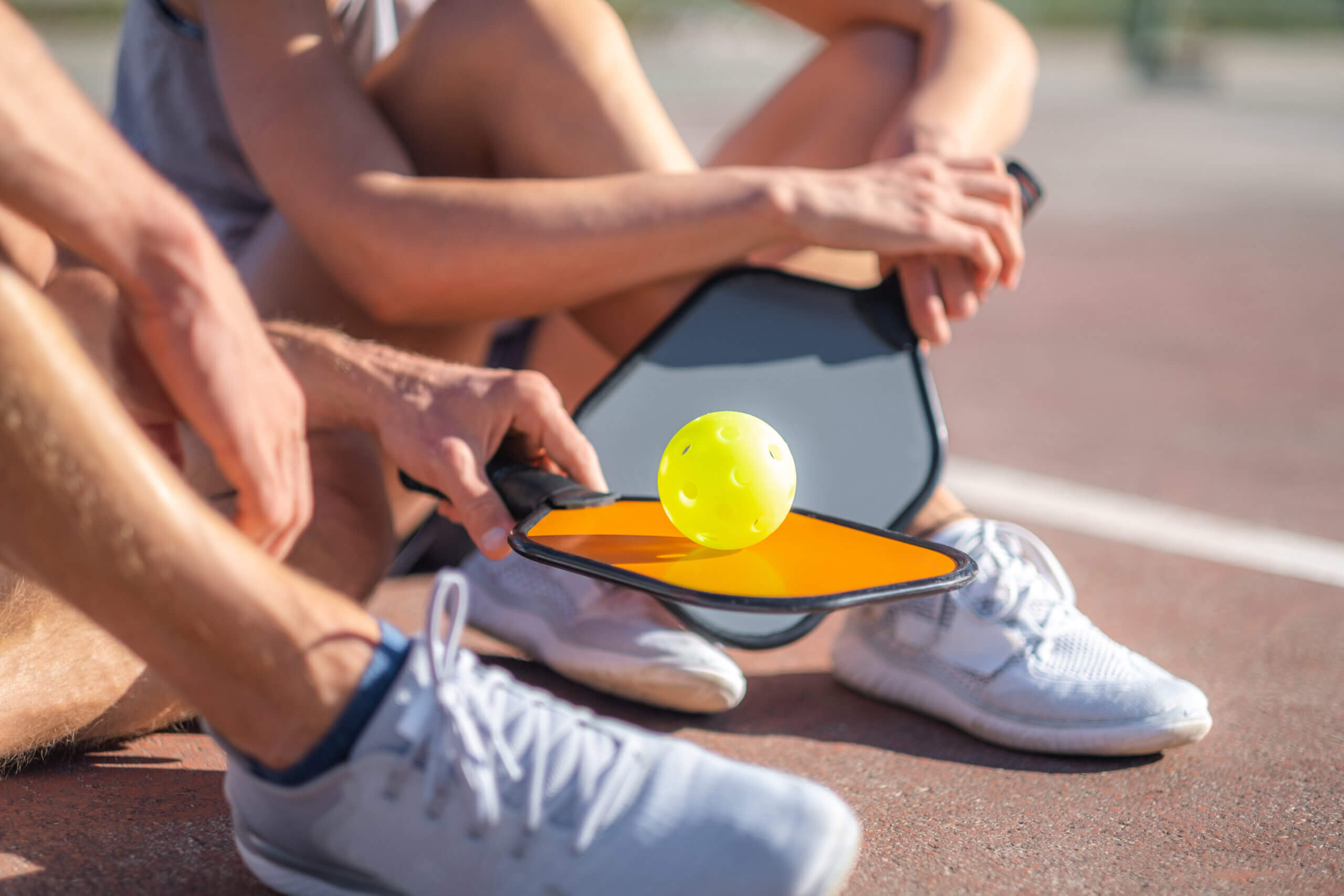Pickleball has become a very popular sport on Long Island and, like other sports, as its popularity has increased so has the number of pickleball injuries. As a matter of fact, a recent Forbes article notes that “Pickleball could be a major culprit in injuries leading to an increase in people using healthcare services,” especially in those over 60. At Long Island Spine Rehabilitation Medicine, we are adept at diagnosing and treating all sorts of sports injuries of the spine, joints, and muscles, including those that occur during a spirited game of pickleball.
If you have suffered a pickleball injury that doesn’t respond to home remedies, is severe, and/or worsens over the next day or two, contact us at one of our convenient Nassau or Suffolk offices. Our physiatrists are specialists in nonsurgical treatments and have a broad range of therapy options available. We also can schedule same-day appointments for urgent matters.
How Pickleball Can Cause Spinal Problems
Pickleball is rather like a lightweight form of tennis (or an on-the-ground form of ping pong) since it is played on a court using paddles and a plastic ball like a wiffle ball, only slightly heavier. Many of the injuries suffered by pickleball players are the result of poor posture. It is important to keep your back straight during this game so you don’t lessen your lumbar spine stability.
Those who repeatedly ignore this caution and curve their back are at risk for several painful injuries, including:
- Sciatica
- ACL tear at the knee
- Herniated disc
How Pickleball Can Cause Other Musculoskeletal Injuries
Actually, many other injuries are apt to occur during games of pickleball. They may be due to overuse, awkward twists, repetitive motions, or trip and falls. Because players of this game use both these upper and lower limbs, these injuries may include:
- Calf strain
- Meniscal tears
- MCL and LCL strains
- Plantar fasciitis
- Hamstring strains
- Achilles injuries
- Ankle sprains
- Tennis or golfer’s elbow (tendonitis involving forearm muscles)
- Wrist tendonitis
- Rotator cuff tendonitis and tears (of the shoulder)
- Labral tears (of the hip)
As you can see, there are few parts of the body not at risk of pickleball injuries. Also, in many cases, chronic conditions like arthritis or osteoporosis can be exacerbated by the activity.
Ways to Prevent Pickleball Injuries While Still Enjoying the Game
We have many methods to successfully treat pickleball injuries, but since it’s better to avoid getting hurt in the first place, here are some suggestions about how to be proactive in protecting yourself:
1. Pay Attention to Your Physical Limitations
Each person has unique strengths and weaknesses. Make sure to take yours into account by wearing a knee, wrist, or ankle brace if necessary, not ignoring pain when it first appears, remembering to take it easy if you haven’t been exercising regularly, and recognizing that aging affects not just stamina but balance and coordination.
2. Warm Up Before You Play Pickleball
Even five minutes of warm-up stretches of various muscle groups can make a noticeable difference in how well your body will function and how flexible you will be on the court. It may even help you win the game.
3. Use Appropriate Attire and Equipment
What you wear can help you avoid injury. Be especially careful to choose shoes (preferably tennis shoes) that will provide side-to-side support as well as arch support and traction. This will translate into decreased risk of Achilles tendon injuries and ankle sprains, not to mention falls in general. You should also make sure to use the right size paddle which will lessen the danger of wrist and elbow injuries.
4. Even Though the Game Is Just for Fun, Try to Use the Correct Form
Try watching a video in which players use the correct posture as they shift positions and swing their arms. It’s surprising how many of our patients get hurt by making uncoordinated, awkward moves, especially if they’ve never played the game before.
5. Help Your Body Rebound After Pickleball
Taking a little time to cool down by walking and stretching a bit after the game will minimize aches and pains and reinvigorate you after exercise. Don’t forget to rehydrate as well.
Contact Our Experienced Pain Management Doctors Today
If, despite all precautions, you are suffering a pickleball injury, give us a call. We’ll diagnose your difficulty quickly and accurately and provide you with both traditional and complementary therapeutic options. In most cases, we’ll get you back on the pickleball court before you know it.
